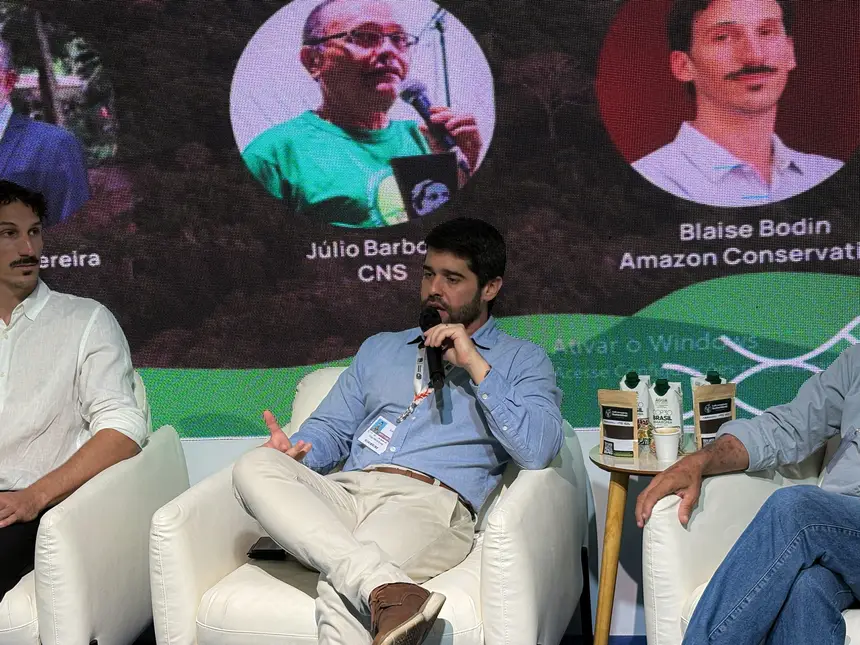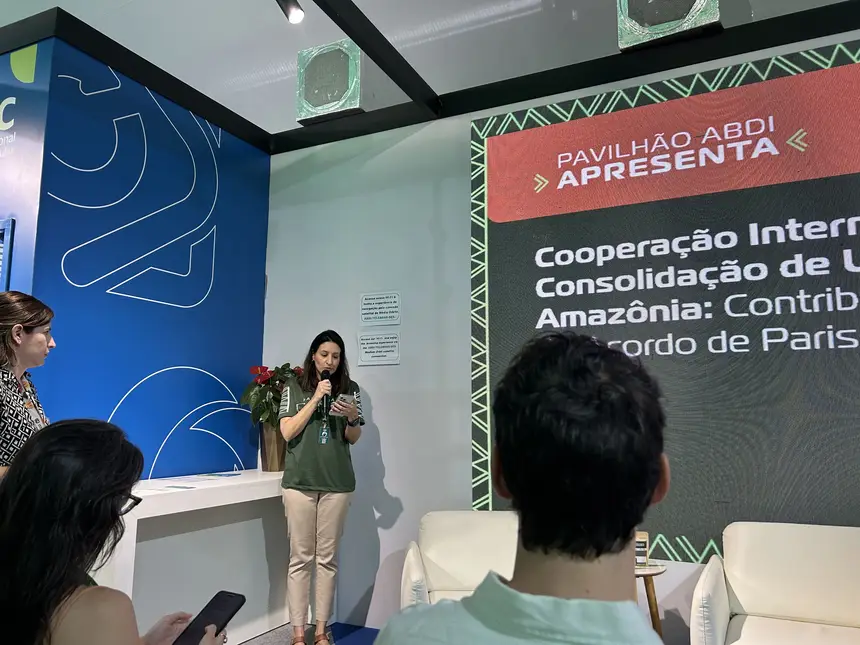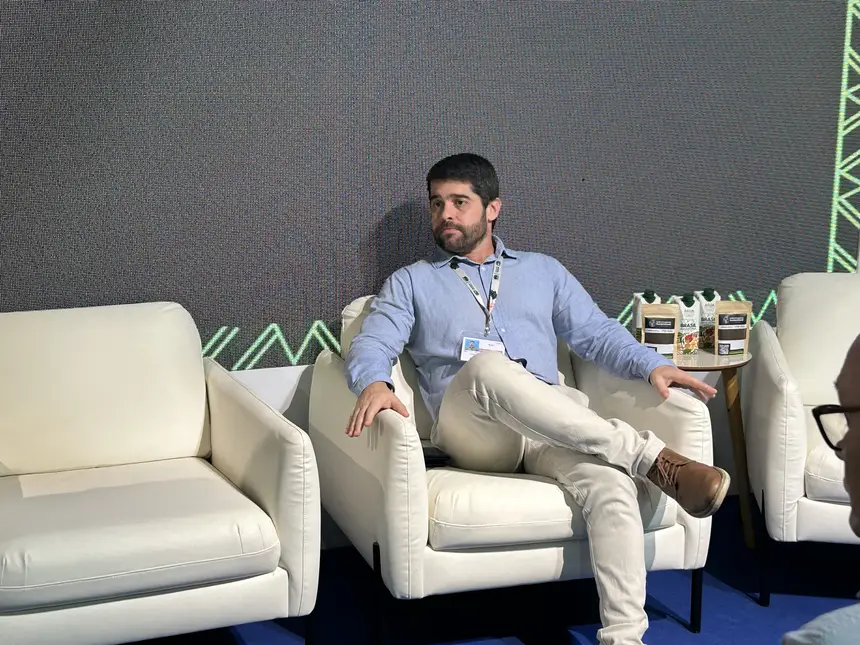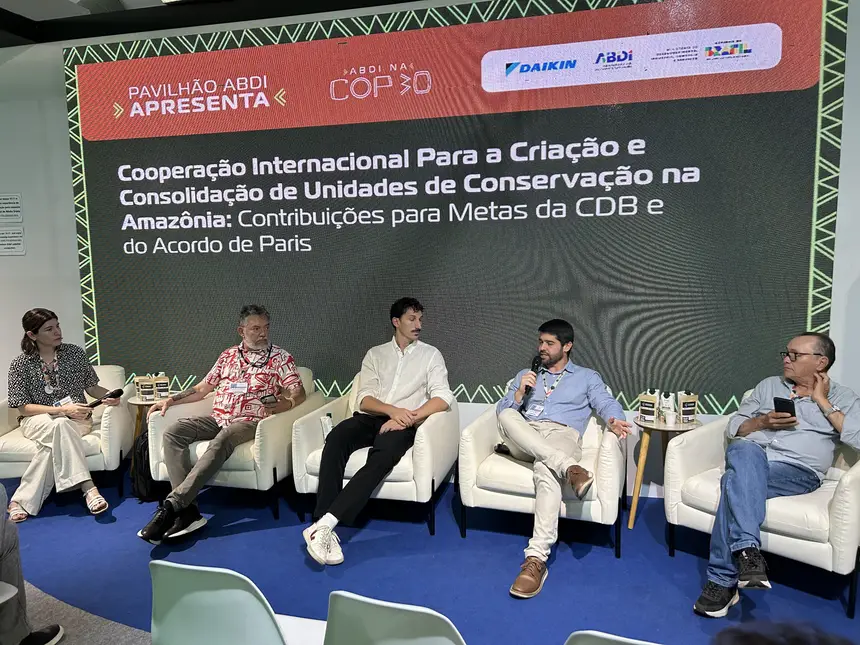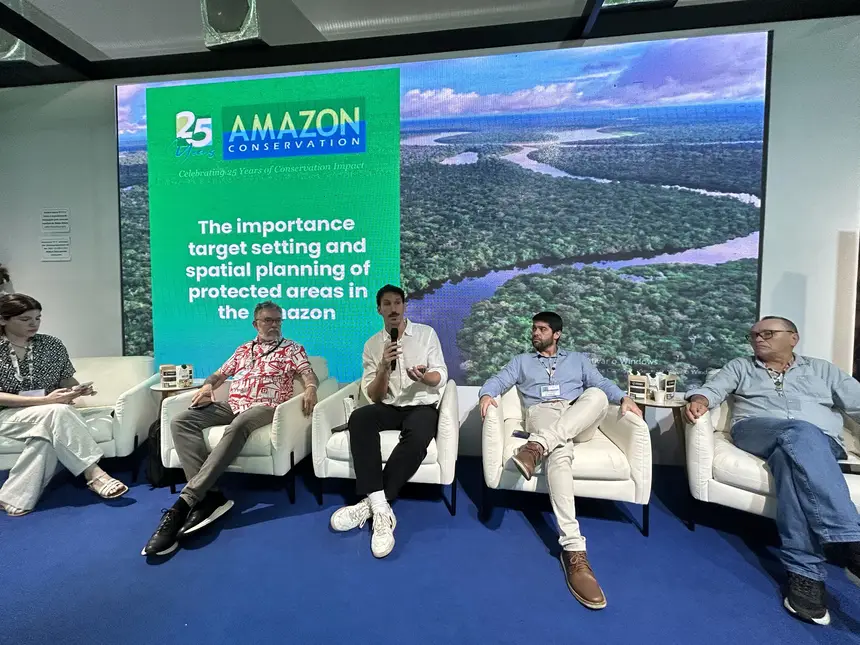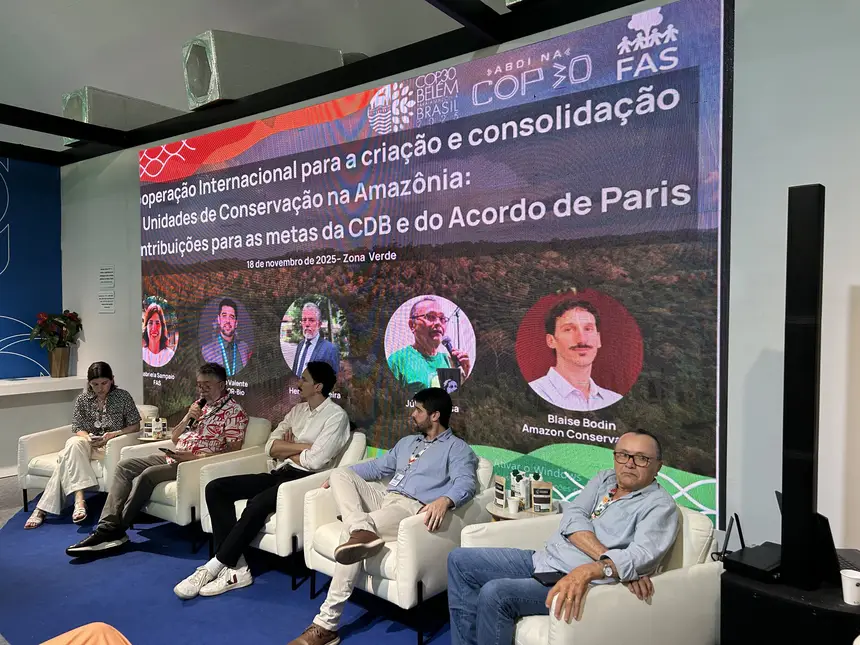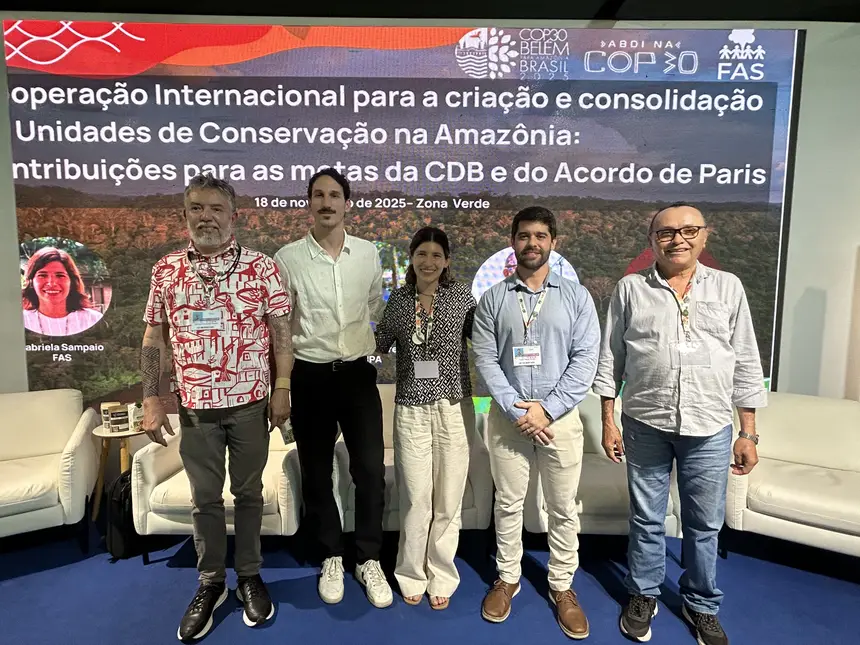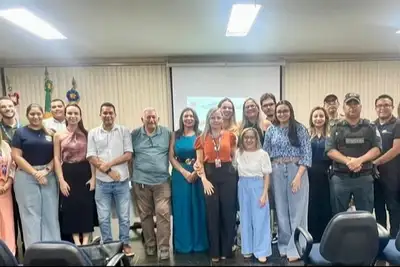Ideflor-Bio highlights during COP30 the importance of partnerships for the creation of conservation units in Pará
The debate brought together representatives to discuss ways to ensure the achievement of global biodiversity targets established in the Kunming-Montreal Global Framework, and the climate commitments outlined in the Paris Agreement.
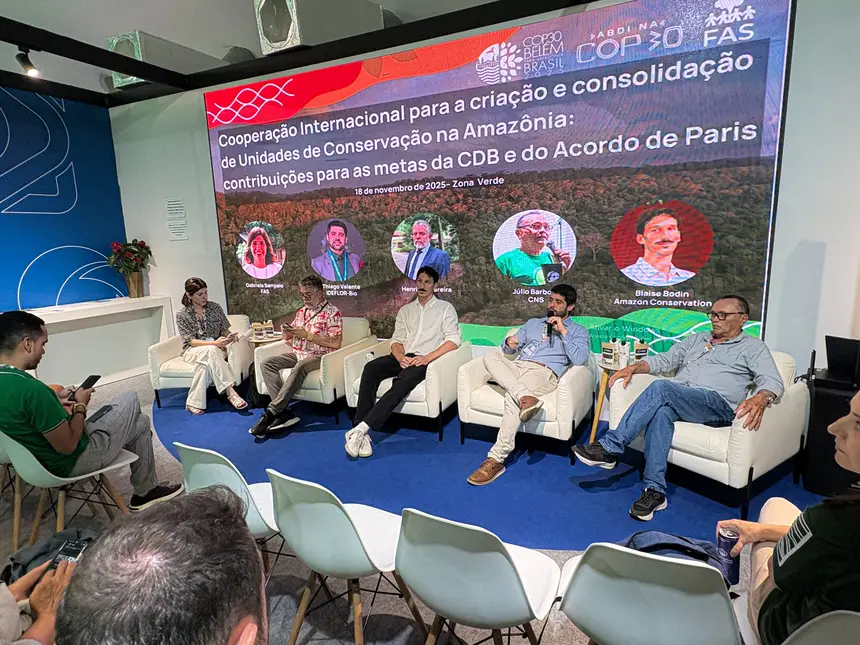
The strategic role of international cooperation for the creation and consolidation of conservation units in the Amazon guided the panel promoted by the Brazilian Agency for Industrial Development (ABDI) on Tuesday (18) at the institution's booth located in the Green Zone of COP30. The debate brought together representatives from governments, civil society organizations, academia, and international cooperation initiatives to discuss ways to ensure the achievement of global biodiversity targets established in the Kunming-Montreal Global Framework and the climate commitments outlined in the Paris Agreement.
The Institute for Forest Development and Biodiversity of Pará (Ideflor-Bio) was represented on this occasion by technical advisor Thiago Valente, who was invited to respond about the most significant contribution of partnerships for the creation and consolidation of state conservation units in Pará.
The panel, structured in a roundtable format, initially presented a historical overview of the creation, expansion, and recategorization of conservation units in Brazil, both at federal and state levels. The moderation highlighted the relevance of international cooperation, philanthropy, and multisectoral partnerships in strengthening the system of protected areas, emphasizing reference projects such as the Protected Areas of the Amazon (Arpa), Sustainable Landscapes of the Amazon (ASL), and "Giant Trees for a New Era." These cases illustrate how the integration of conservation, sustainable development, and community participation results in innovative and lasting solutions for the protection of the Amazon.
When addressing the experience of the State of Pará, Thiago Valente emphasized that the trajectory of consolidating state conservation units was only possible thanks to continuous partnerships established over decades. He recalled that since the creation of the first state unit in 1989, Pará has achieved a total of 29 protected areas, a process that would have been unfeasible without the support of national and international institutions. "Partnership is welcome, it is healthy, and it has been decisive for both the creation and the implementation phase of the units," he stated.
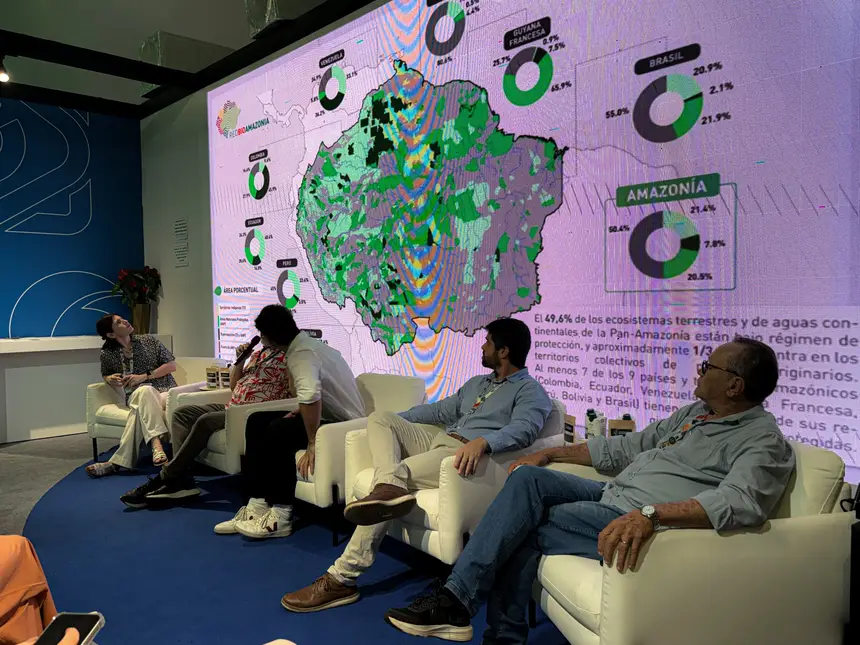
State Park of the Giant Trees of the Amazon
The technical advisor highlighted as the most recent and significant example the cooperation established, starting in 2023, between Ideflor-Bio, the Sustainable Amazon Foundation (FAS), and the Andes Amazon Fund (AAF). This initiative enabled the creation of the State Park of the Giant Trees of the Amazon — the Sanctuary of the Giant Trees — consolidated in 2024 from the transformation of 560 thousand hectares of the State Forest of Paru, previously categorized as Sustainable Use to Integral Protection. "We continue to advance in the implementation of this UC with technical expeditions, dialogue with local communities, construction of tourism products, and structuring of nature routes," Valente highlighted.
During the interaction with the audience, the representative of Ideflor-Bio added that Pará has practically fulfilled all the targets for the creation of conservation units outlined in the 2005 Ecological-Economic Macro-Zoning. According to him, the current moment is marked by the deepening of studies and the re-evaluation of territories, which may result in transformations or recategorization of areas, as occurred in the case of the Giant Trees. "We are in a phase where the accumulated knowledge about the territories guides important adjustments in management and the type of protection suitable for each area," he explained.
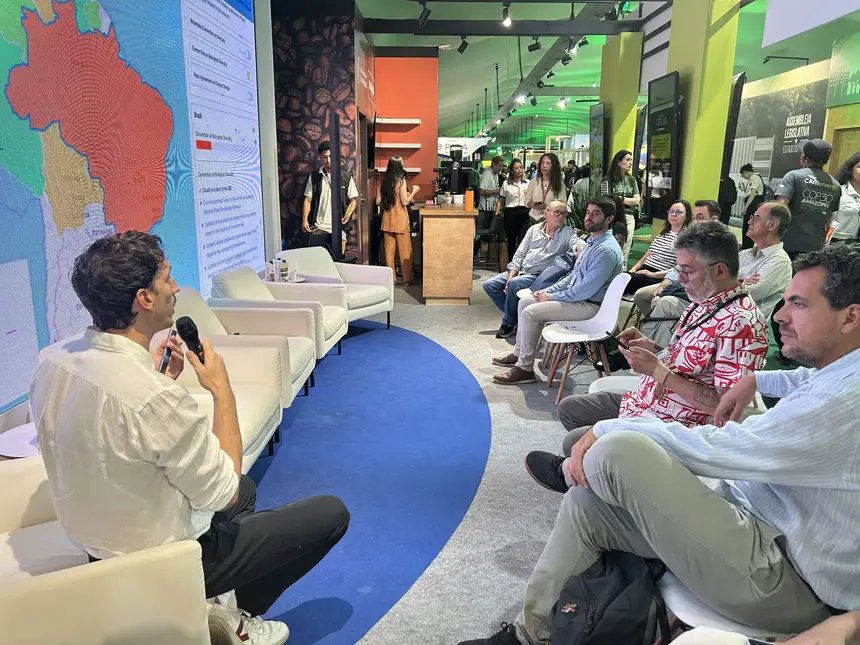
Incentive for the creation of green areas in municipalities
Valente also drew attention to the State Policy and System of Conservation Units, which encourages the creation of protected areas in municipalities, a process that has been strongly pursued by Ideflor-Bio. Although smaller in territorial extent, these areas have great potential for raising awareness among the urban population, bringing society closer to the environmental agenda. "They involve a new sphere of government, the municipality, and allow more people to experience nature, participate in environmental education actions, and contribute to restoration processes," he noted.
Over the course of 60 minutes, the panel advanced on structural challenges, funding bottlenecks, cooperation opportunities, and strategies to expand territorial protection in the Amazon. Also participating were Henrique dos Santos Pereira (Inpa), Júlio Barbosa (CNS), Blaise Bodin (Amazon Conservation), and Virgílio Viana (FAS), who brought complementary perspectives on the role of traditional communities, private resource mobilization, and the third sector's role in the management of conservation units.


